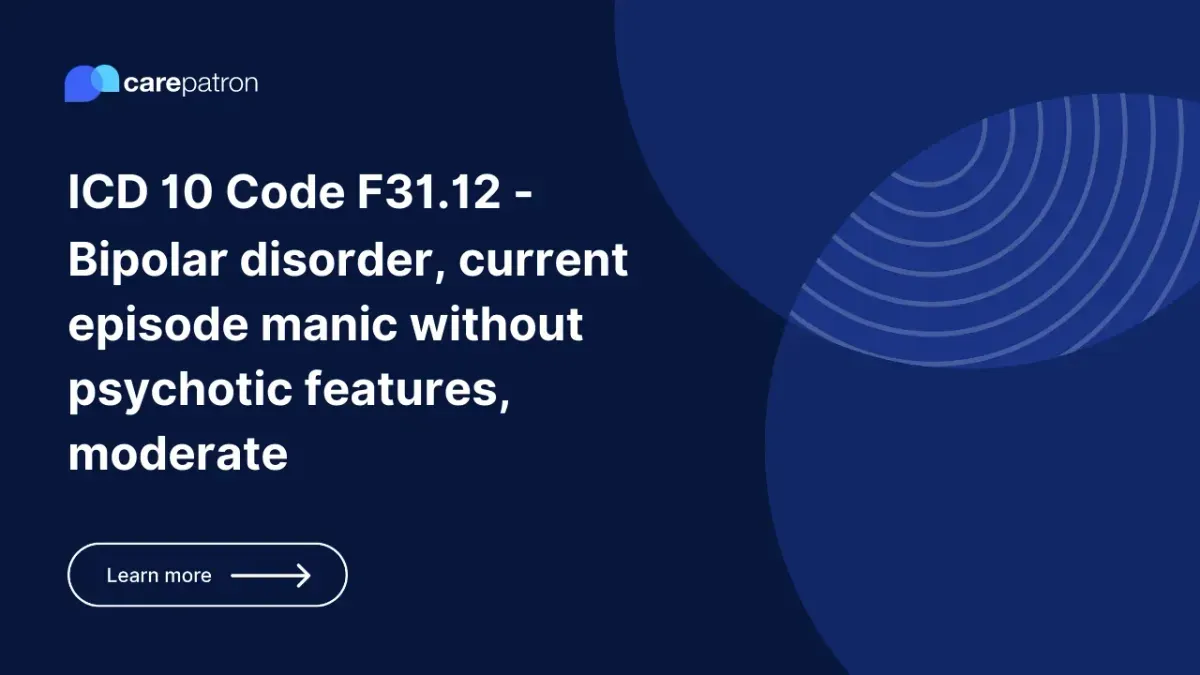
F31.12 – Bipolar Disorder, Current Episode Manic Without Psychotic Features, Moderate
Learn about the ICD-10-CM code F31.12, which highlights Bipolar Disorder, Current Episode Manic without Psychotic Features, Moderate.
Use Code
Commonly asked questions
Yes, bipolar disorder is a lifelong condition. However, with effective management, individuals can lead healthy and productive lives.
Typically, yes. Medication is a core part of managing bipolar disorder. It often includes mood stabilizers, antipsychotics, and sometimes antidepressants.
Absolutely. Regular exercise, a balanced diet, adequate sleep, and stress management can significantly assist in managing the symptoms of bipolar disorder.
EHR and practice management software
Get started for free
*No credit card required
Free
$0/usd
Unlimited clients
Telehealth
1GB of storage
Client portal text
Automated billing and online payments
